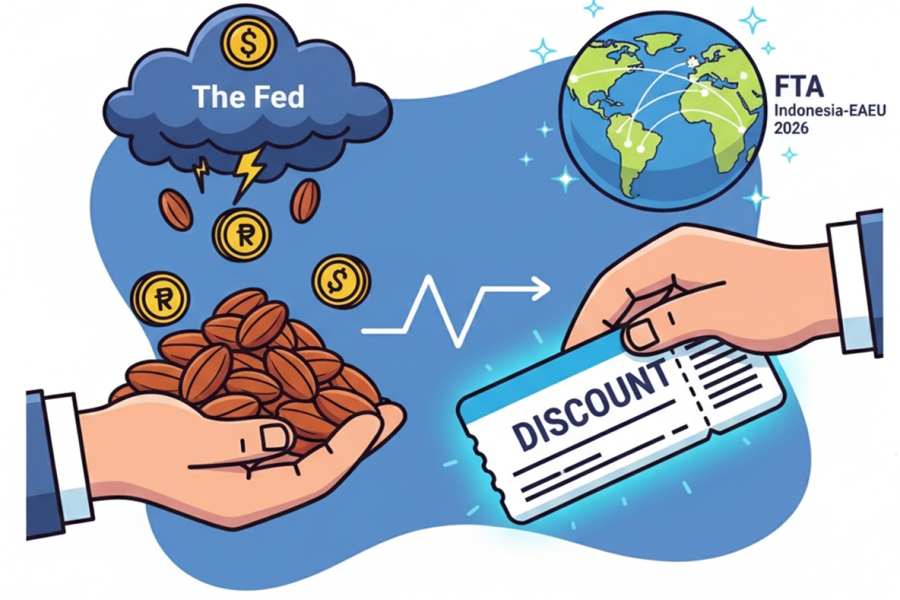
The current period is characterized by a dual fiscal policy implemented by the Ministry of Finance (Kemenkeu) in an effort to balance state revenue with a boost to domestic consumption. Minister of Finance (Menkeu) Purbaya Yudhi Sadewa introduces a new export levy on cocoa beans to reinforce industrial downstreaming, while simultaneously providing an incentive in the form of a Value Added Tax (VAT) discount on airline tickets to maintain public purchasing power. This policy comes amidst global pressure due to The Fed interest rate hike and growing optimism over the formation of a new free trade agreement.
The Indonesian government adopts a dual fiscal policy, balancing the efforts to increase revenue and stimulate domestic consumption. Finance Minister Purbaya Yudhi Sadewa officially imposes an export levy on cocoa beans, with a tariff reaching 7.5%. This policy aims to encourage the downstreaming of cocoa products, while also being expected to become a new source of state revenue from the commodity sector. On the other hand, the government officially grants a 6% VAT discount on airline tickets during the Christmas and New Year (Nataru) period. This incentive aims to maintain public purchasing power and boost the domestic tourism sector.
This domestic policy is being implemented amidst significant external monetary pressure. The Fed's effective interest rate rises for the third time in a month. This increase indicates a tight monetary policy in the United States, which potentially puts pressure on the Rupiah exchange rate and impedes foreign capital flow into Indonesia.
Despite monetary pressure, Indonesia receives good news from the international trade sector. The Free Trade Agreement (FTA) between Indonesia and the Eurasian Economic Union (EAEU) is set to take effect in 2026. This agreement projects Indonesia's exports will increase 3-fold, providing optimism for future international trade performance and the balance of payments.
Minister Purbaya's decision to impose an export levy on cocoa affirms the commitment to downstreaming. However, this is potentially contradictory to the policy of a VAT discount on airline tickets which aims to maintain purchasing power, reflecting a dual pressure on taxation policy to balance revenue and stimulus. External pressure is increasingly felt with the third Fed interest rate hike, demanding vigilance from Indonesian monetary authorities. Good news comes from international trade, where the implementation of the Indonesia-EAEU FTA in 2026 is expected to boost exports and provide significant economic benefits.
The latest developments show the government's efforts to maintain public purchasing power through a VAT discount policy, while simultaneously seeking new revenue sources from the commodity sector through the cocoa export levy. The direction of taxation policy towards 2026 underscores the major challenge in balancing fiscal needs and domestic economic stability. External pressure from the Fed interest rate hike further complicates the situation, while businesses—especially exporters—need to closely monitor the implementation of the Indonesia–EAEU FTA in 2026, which potentially opens new export opportunities.